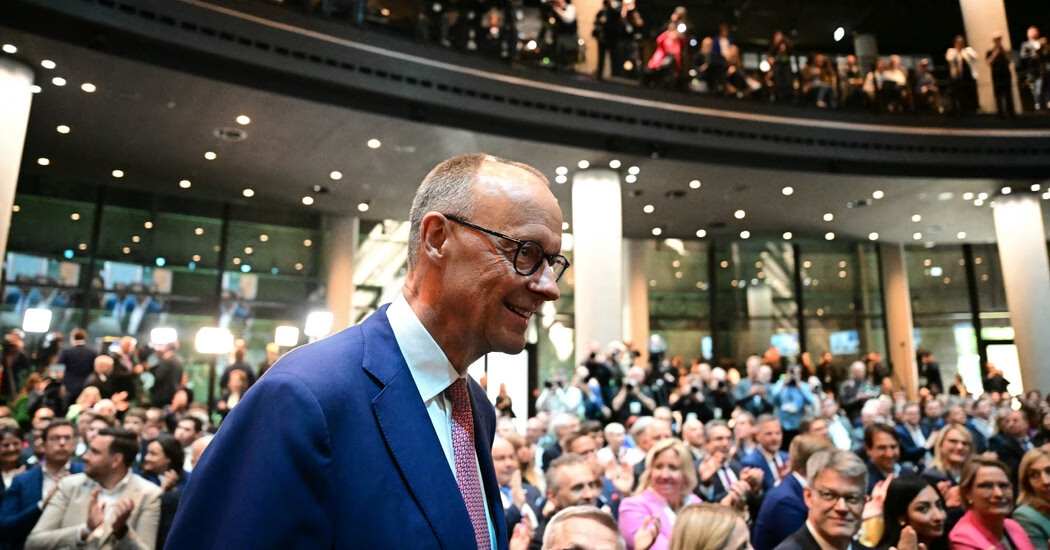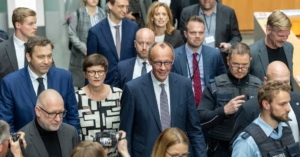In a significant shift in Germany’s political landscape, conservative Christian Democrat Friedrich Merz is set to be sworn in as the next chancellor on Tuesday, six months after the collapse of Olaf Scholz’s three-party coalition. Merz, known for his engaging speeches, brings a new dynamic to the leadership, emphasizing Germany’s return to a leadership role in Europe. Despite taking a decade-long break from politics post-Angela Merkel, Merz himself has never been in government, marking a moment of unprecedented change.
Merz’s ascension follows a relatively short negotiation period between the Christian Democratic Union (C.D.U.) and the incumbent Social Democrats (S.P.D.). The C.D.U., with 28.5 percent of votes, emerged victorious, while the S.P.D. entered as the third party with just 16.5 percent, illustrating a marked ideological shift.
Germany, however, faces its gravest challenges since reunification. The economy was already in a slump even before President Trump’s tariffs, exacerbated by a decline in exports to China and high energy costs due to sanctions on Russian gas. Additionally, labor costs are unusually high, and public infrastructure is in dire condition. This precarious economic situation, coupled with the potential loss of American security guarantees, places significant responsibility on Merz’s shoulders.
Moreover, the far-right Alternative for Germany (AfD) poses a formidable challenge, labeled as “extremist” by Germany’s domestic intelligence service, and yet leading in polls, rivaling even Merz’s C.D.U. This scenario complicates Germany’s political landscape, pressing Merz to articulate a cohesive strategy.
Interestingly, Merz’s cabinet selections have been both surprising and diverse, including appointees from the private sector in an unusually rare move. Karsten Wildberger, for example, will lead Germany’s digitalization efforts after heading MediaMarktSaturn, the nation’s largest electronics retailer. This reflects a strong commitment to modernization.
Merz has thus far announced only seven of the 17 ministers to be sworn in under him, with the Christian Social Union and the S.P.D. also naming their candidates. Notably, Verena Hubertz, a young entrepreneur and co-founder of a cooking platform, is set to lead the ministry of housing, while Karin Prien, a Jewish member from the C.D.U.’s progressive wing, will oversee education, marking several historic firsts for German politics.
The official swearing-in procedure is relatively low-key yet complex, involving parliamentary approval and official nominations. Once confirmed, Merz and his team will face the daunting task of navigating Germany’s precarious position on both the economic and political fronts.
Despite the challenges, there is cautious optimism about the longevity of Merz’s government. Unlike Scholz, who had to balance between three ideologically divergent parties, Merz faces a different conundrum—a surging AfD that could complicate future governance. However, given the potential for early elections and the consequent risk of bolstering the AfD, there is a shared reluctance among coalition members for an early dissolution, suggesting that this government might have a better chance of enduring.
Source: https://www.nytimes.com/2025/05/06/world/europe/germany-new-government.html





